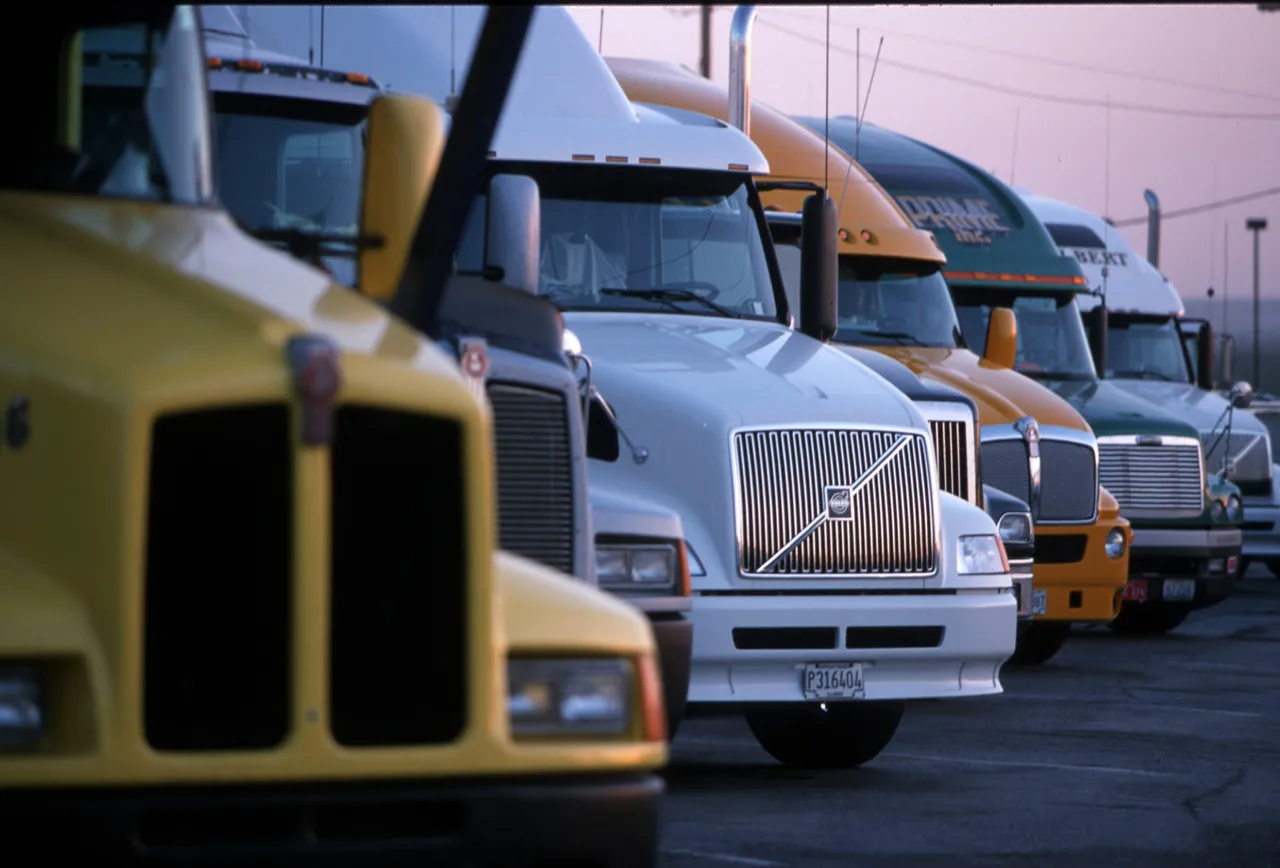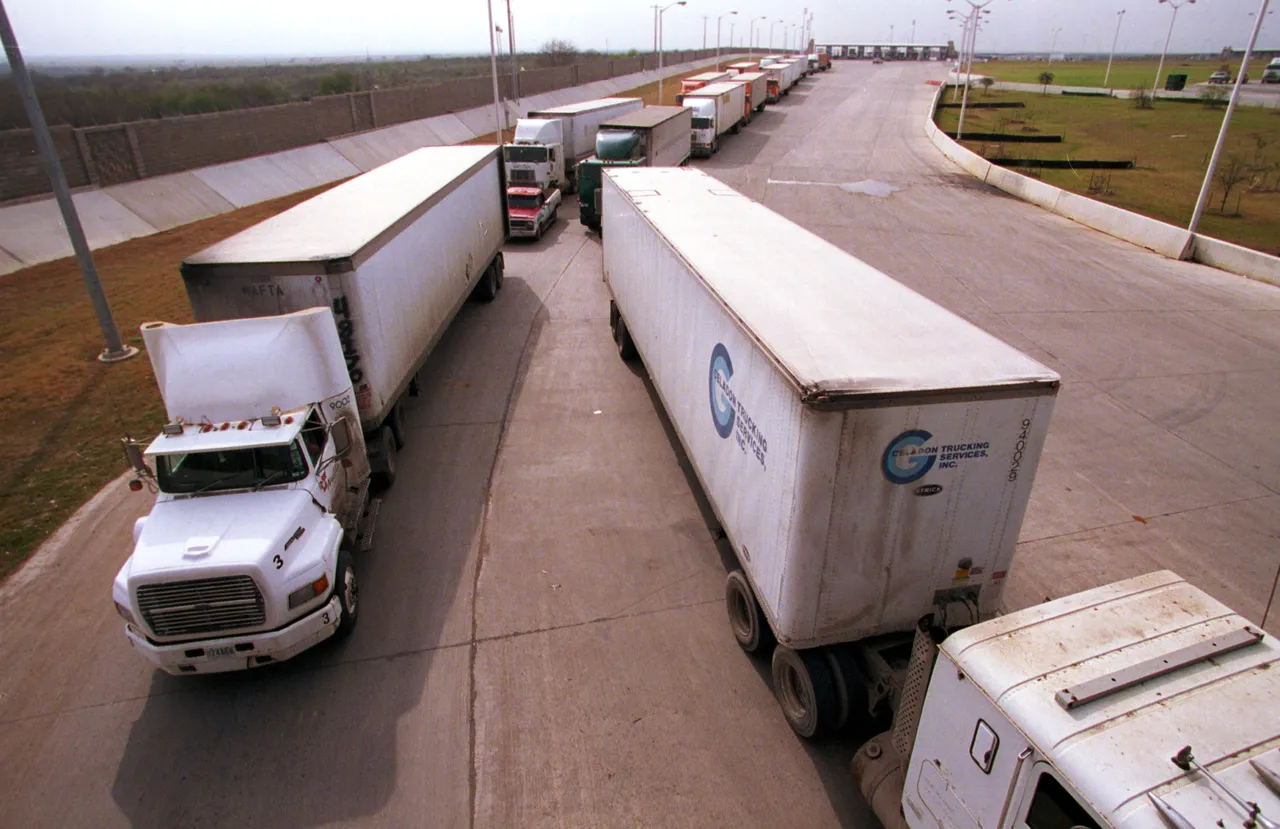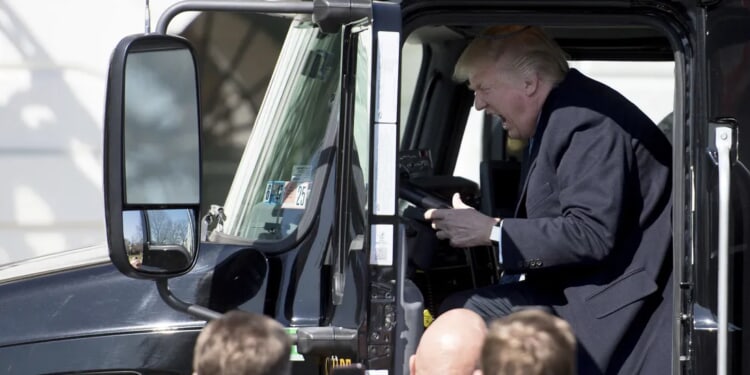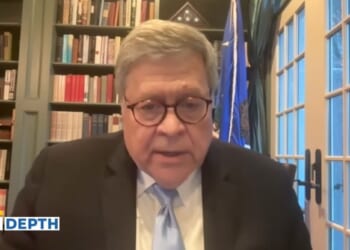American truckers are cheering the Trump administration’s crackdown on illegal migrant drivers as not only a means to make highways safer, but also as a step to raking in more cash in markets long known for profiting off cheap foreign labor.
President Donald Trump’s Department of Transportation (DOT) has rattled the trucking industry with nationwide orders, such as tougher English proficiency standards and drastic restrictions on foreign commercial drivers. The changes followed a string of horrific accidents caused by illegal migrants who managed to score commercial driver’s licenses (CDL) from various states. (RELATED: ICE Nabs Illegal Migrant Truck Driver With ‘No Name’ Listed On Driver’s License)
“I’ve definitely noticed some rates going up,” Ilya Denisenko, the owner and operator of ICV Express, said to the Daily Caller News Foundation. Just days earlier, Denisenko was easily able to negotiate a load — originally posted for $1,000 — up to $1,900.
“Without me even speaking to someone, they approved $1,900,” he explained. “That’s almost double of what they had originally posted for, and I would say the normal rate for that lane was about maybe $1,500 to $1,600, and I automatically got $1,900.”

370225 03: Tractor-trailer rigs are parked at the Petro truck stop May 29, 2000in El Paso, TX. (Photo by Joe Raedle/Newsmakers)
There are roughly 3.5 million truck drivers who carry a commercial driver’s license (CDL) in the United States, according to the American Trucking Associations. Industry experts estimate that around 200,000 of them carry non-domiciled CDLs — these are commercial licenses issued by state governments to individuals who are not residents of that state, typically applying to foreign nationals.
“I don’t think that’s that many compared to the total number of drivers, but I think it’ll more affect certain markets,” Denisenko said. “They’re either in the New York or Chicago area, and it seems like all of their drivers are visa holder drivers with non-domiciled CDLs.”
Trucking regulations became headline news in August when a truck driver was accused of killing three people who smashed into his truck after he allegedly took an unlawful u-turn along a Florida turnpike. A subsequent investigation discovered that the driver, an Indian national, was not only living in the country illegally, but he also barely understood English and failed to recognize basic road signs.
The Trump administration also highlighted the plight of Marcus Coleman’s five-year-old daughter, who has been left with life-altering injuries after an illegal migrant truck driver in June 2024 caused a multi-vehicle wreck in California. Like the truck driver in the Florida crash, the driver behind the horrific California crash was an Indian national who earned a CDL issued by state officials.
The appalling crashes ignited questions over how these drivers were able to score CDLs, with the DOT launching a nationwide investigation.
DOT Secretary Sean Duffy declared in September that non-citizens who wish to earn non-domiciled CDLs must undergo a mandatory federal immigration status check and have an employment-based visa. The secretary added that an ongoing Federal Motor Carrier Safety Administration (FMCSA) investigation uncovered a pattern by state officials doling out licenses unlawfully to foreign drivers — with California allegedly being the most egregious actor.
California was ordered to immediately pause issuance of non-domiciled CDLs and identify all unexpired non-domiciled CDLs that do not comply with FMCSA regulations. The state was given until the end of October to come into compliance or risk immediately losing out on $160 million in federal highway funds.
The directives are a sharp reversal from actions taken by the Obama administration, which had nixed long-standing English proficiency regulations in 2016. Career truck drivers previously told the DCNF that the Obama administration’s decision opened the door to many unqualified drivers, many of them here unlawfully, obtaining commercial licenses.
Advocates that represent American citizen truck drivers say the move is a “very welcomed development,” but added that more can be done.
“The spot market business has seen a net increase in yield out of markets known for harboring illegal alien truck drivers,” Shannon Everett, a spokesperson for American Truckers United, said to the DCNF. “Markets like California, Illinois, New York, Minnesota, and Pennsylvania.”
“While a positive movement in pricing is a very welcomed development for American trucking companies, we are still miles away from even a breakeven pricing environment for American owned trucking companies,” Everett added. “The administration could and should fix this situation immediately. This could be accomplished by revoking all Non-Domicile CDLs as soon as possible.”

385550 09: Trucks from Mexico queue as they wait to enter the United States at a border crossing point February 14, 2001 from Neuvo Laredo, Mexico to Laredo, TX. (Photo by Joe Raedle/Newsmakers)
In the meantime, the administration has touted major busts of illegal migrant CDL holders across the U.S.
Immigration and Customs Enforcement ICE) agents, working alongside the Oklahoma Highway Patrol, arrested nearly 100 illegal migrants operating commercial motor vehicles during a three-day operation along a single highway. Altogether, ICE agents took 120 illegal migrants into custody for immigration violations.
Among the individuals nabbed in the Oklahoma operation was an Indian national with “no name given” listed on his CDL. The license was granted by government officials in New York, a state with hardline sanctuary policies that has repeatedly clashed with the Trump administration.
“New York is not only failing to check if applicants applying to drive 18-wheelers are U.S. citizens but even failing to obtain the full legal names of individuals they are issuing commercial drivers’ licenses to,” Department of Homeland Security (DHS) Assistant Secretary Tricia McLaughlin previously said about the bust. “DHS is working with our state and local partners to get illegal alien truck drivers who often don’t know basic traffic laws off our highways.”
Duffy announced Wednesday that his department would withhold more than $40 million in federal funds from California for failing to comply with English language proficiency standards.
Other analysts, while cautioning that overall rates have remained mostly steady, have noticed an impact in markets notorious for relying on illegal migrant truck drivers. They expect more of an impact to the entire industry as non-domiciled CDL holders are steadily removed from the market.
“Several factors are at play: Non-Domiciled CDL holders who no longer qualify won’t leave the market all at once. Some are having their CDLs downgraded because their medical cards are expiring, others are unable to renew, and many are still operating, maximizing earnings before their CDLs become invalid,” Miranda, a trucking entrepreneur who is known professionally only by her first name and hosts the “Trucking Made Successful” YouTube channel, said to the DCNF.
She added that there’s been a “behavioral” phenomenon since the administration’s crackdown, with some drivers refusing to operate due to uncertainty about CDL downgrades and insurance companies reportedly refusing to insure non-domiciled drivers.
“Over the next few months, provided volumes don’t decline further, I expect rates to rise,” Miranda added. “The new rule is a starting point, but its impact will become more significant as renewals are denied. Currently, downgrades are occurring gradually, resulting in a trickle of capacity reduction rather than a sharp drop.”
Washington has other tools at its disposal to improve the quality of life for American truckers, industry advocates say, and could pass legislation like the Overtime for Truckers Act introduced by New Jersey GOP Rep. Jeff Van Drew.
While calls for more action from the Trump administration continue, some truckers say they see a glimmer of hope.
“Yeah, I’m definitely optimistic,” Denisenko said to the DCNF about the future of the industry. Himself an immigrant who became a naturalized American citizen, Denisenko said it took him two months of training and living with another driver to finally earn his CDL license the right way.
“Getting my CDL, registering the company, and all that stuff, it wasn’t easy,” he said, listing how he had to know the language, understand the system and obtain the proper registration for his business. “Meanwhile, these people could just buy their CDL and have it tomorrow, and that’s it. And I guess the result of that is all the crashes that you see now.”
All content created by the Daily Caller News Foundation, an independent and nonpartisan newswire service, is available without charge to any legitimate news publisher that can provide a large audience. All republished articles must include our logo, our reporter’s byline and their DCNF affiliation. For any questions about our guidelines or partnering with us, please contact licensing@dailycallernewsfoundation.org.

















